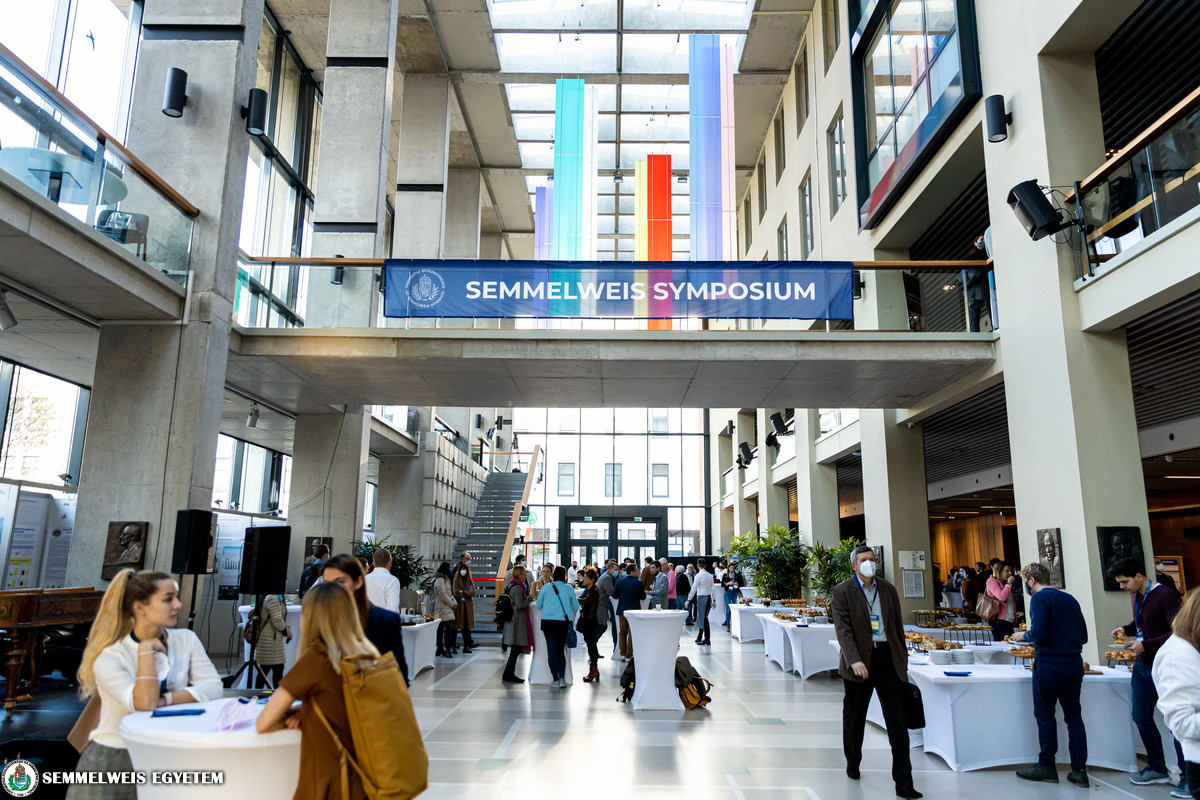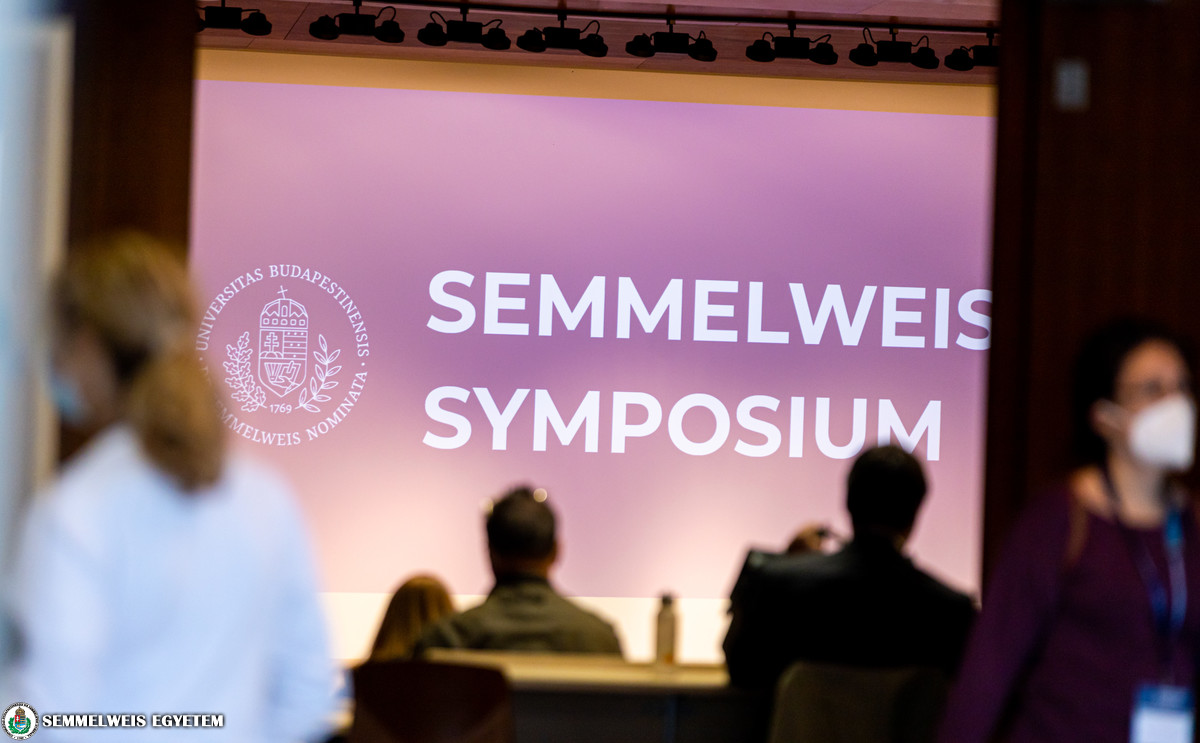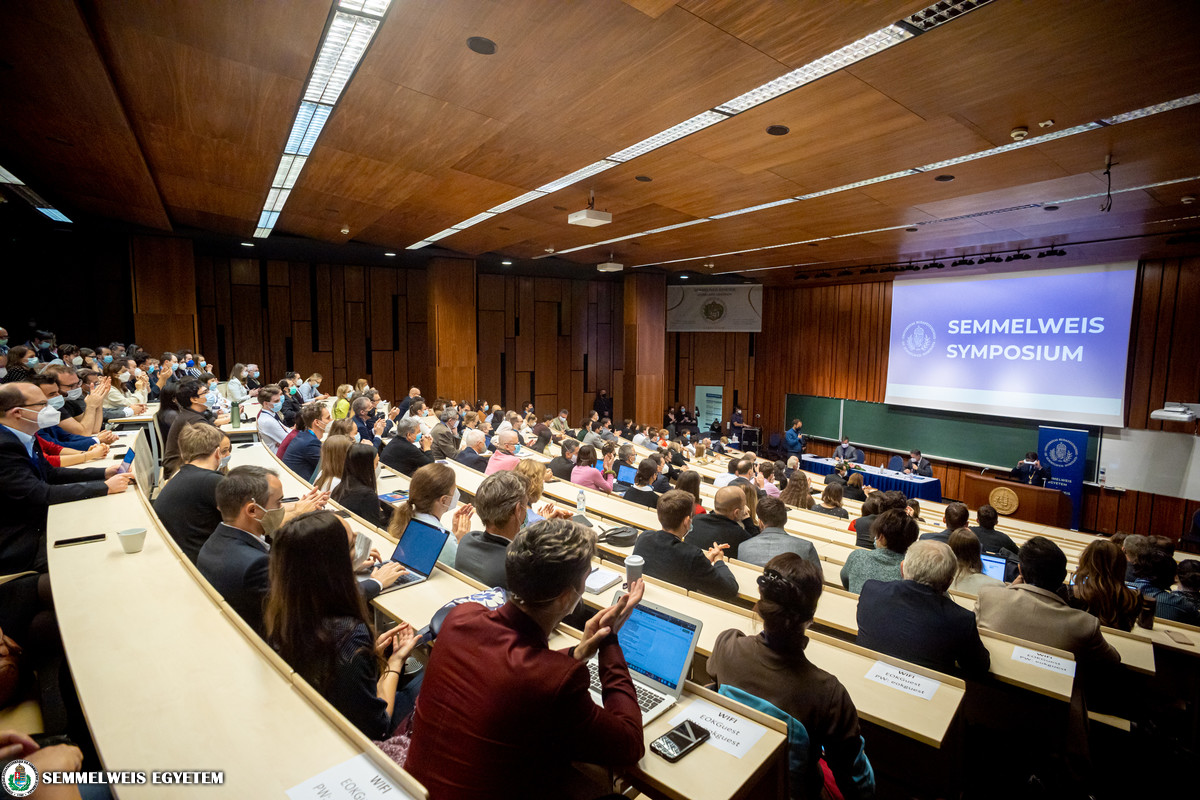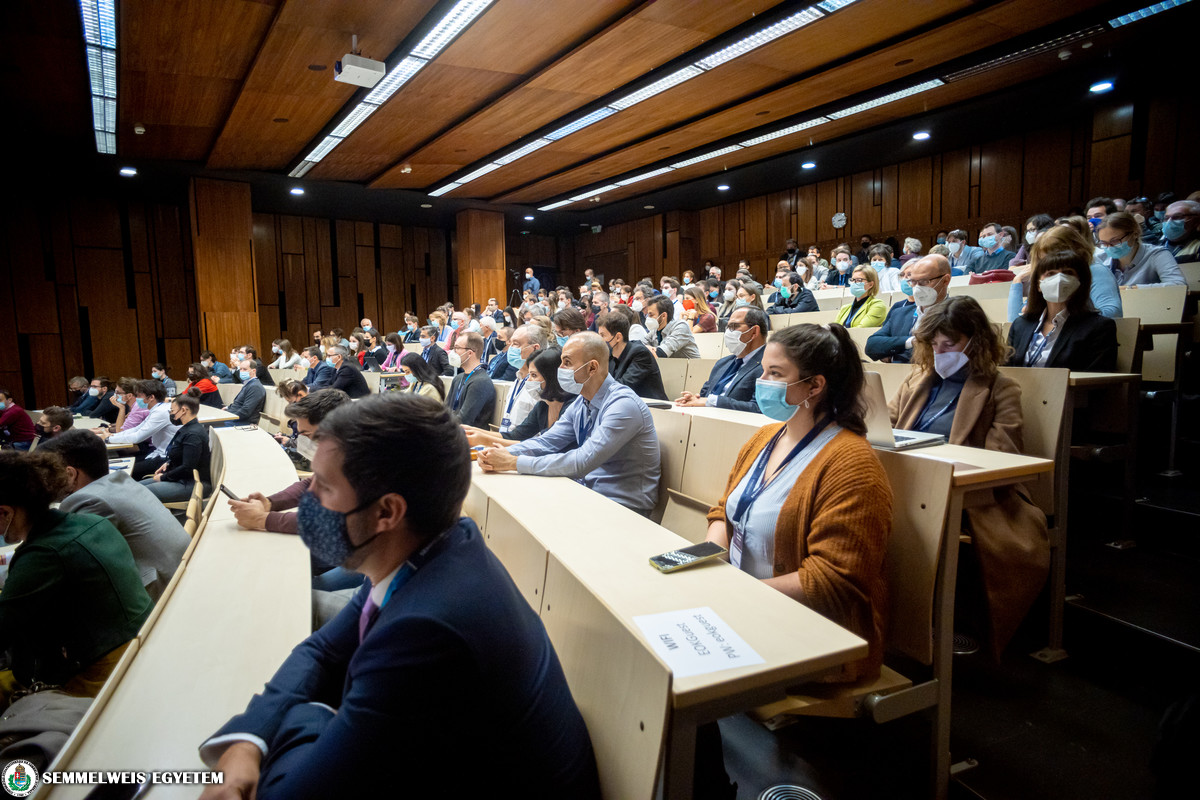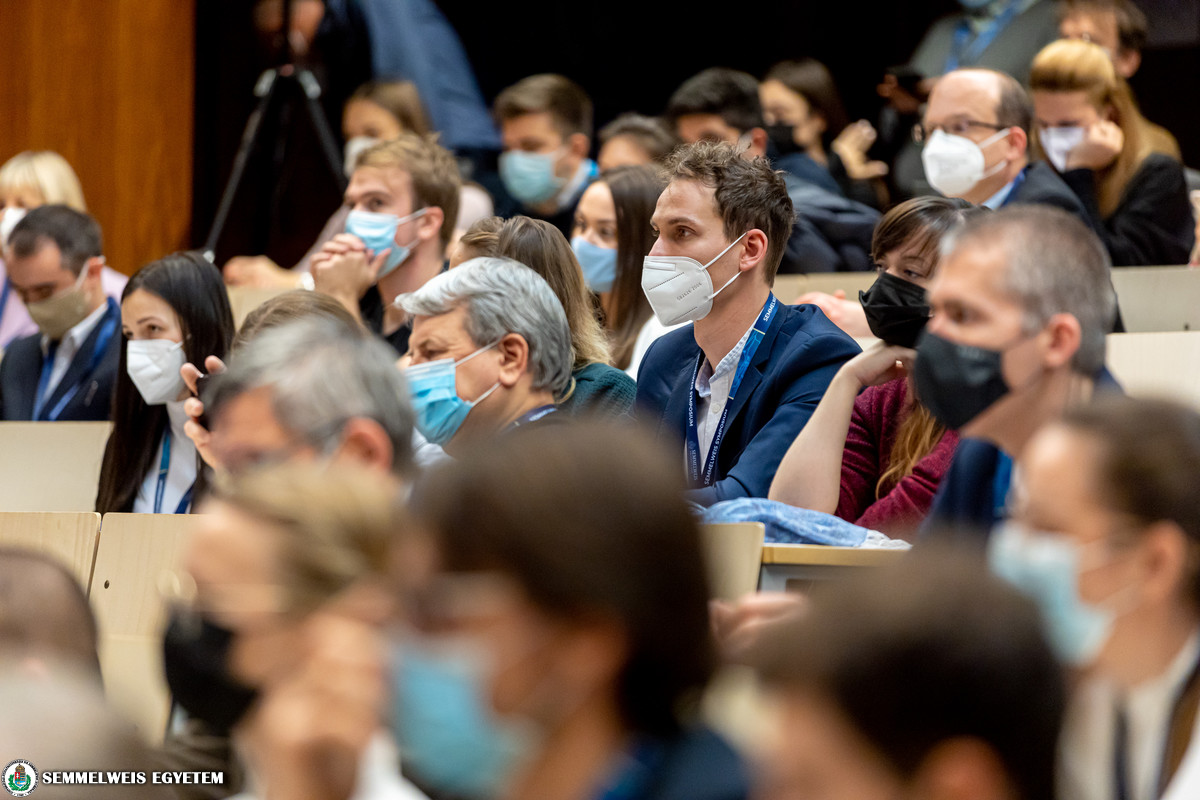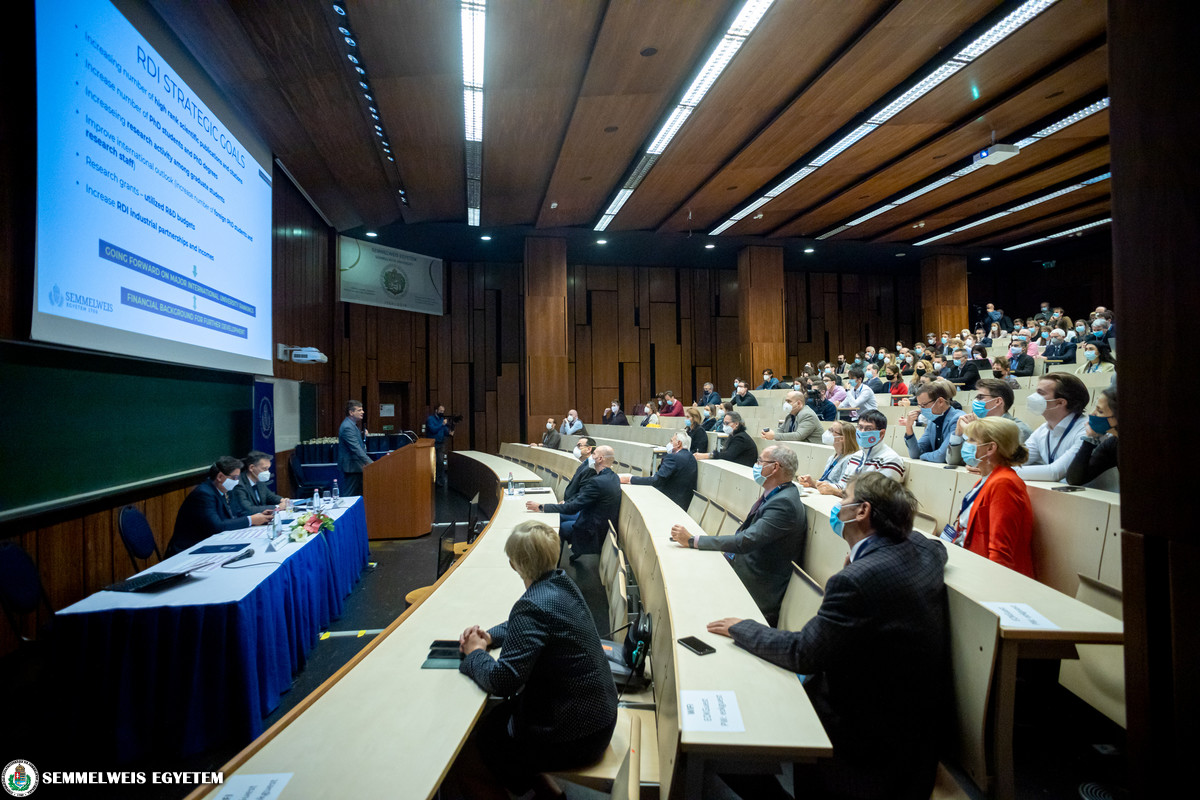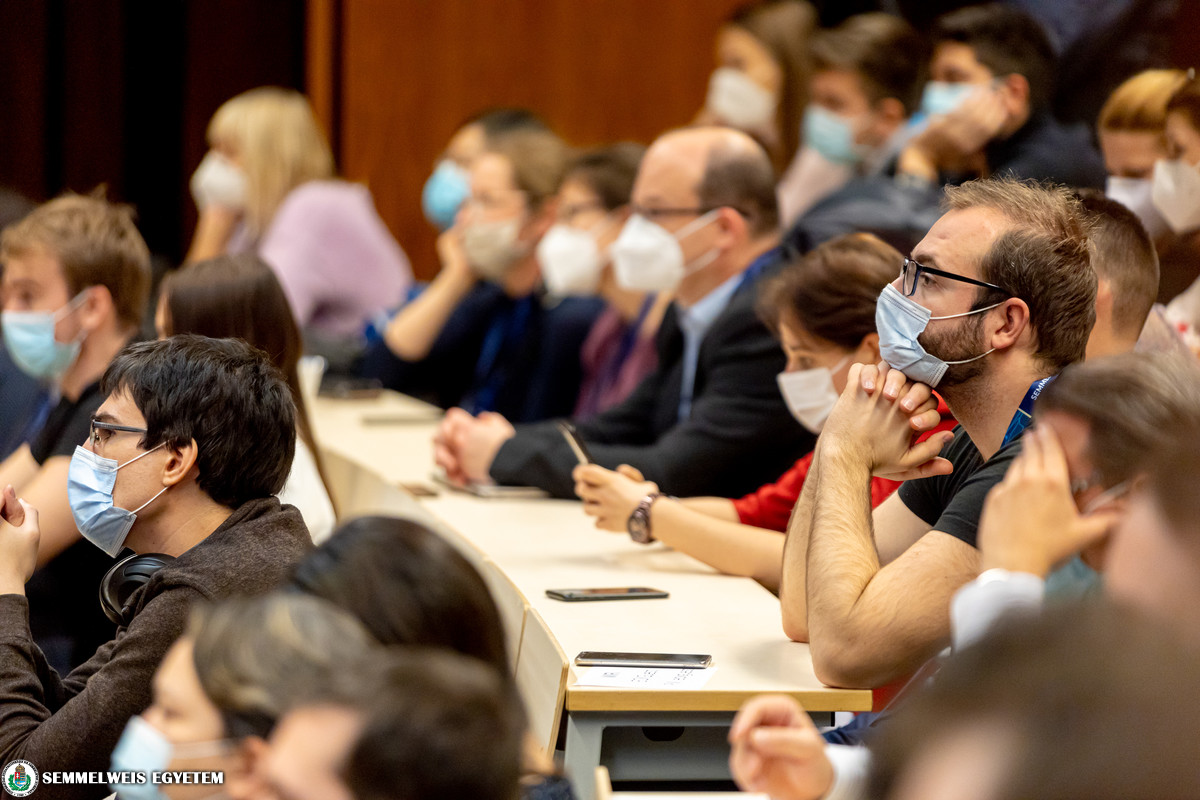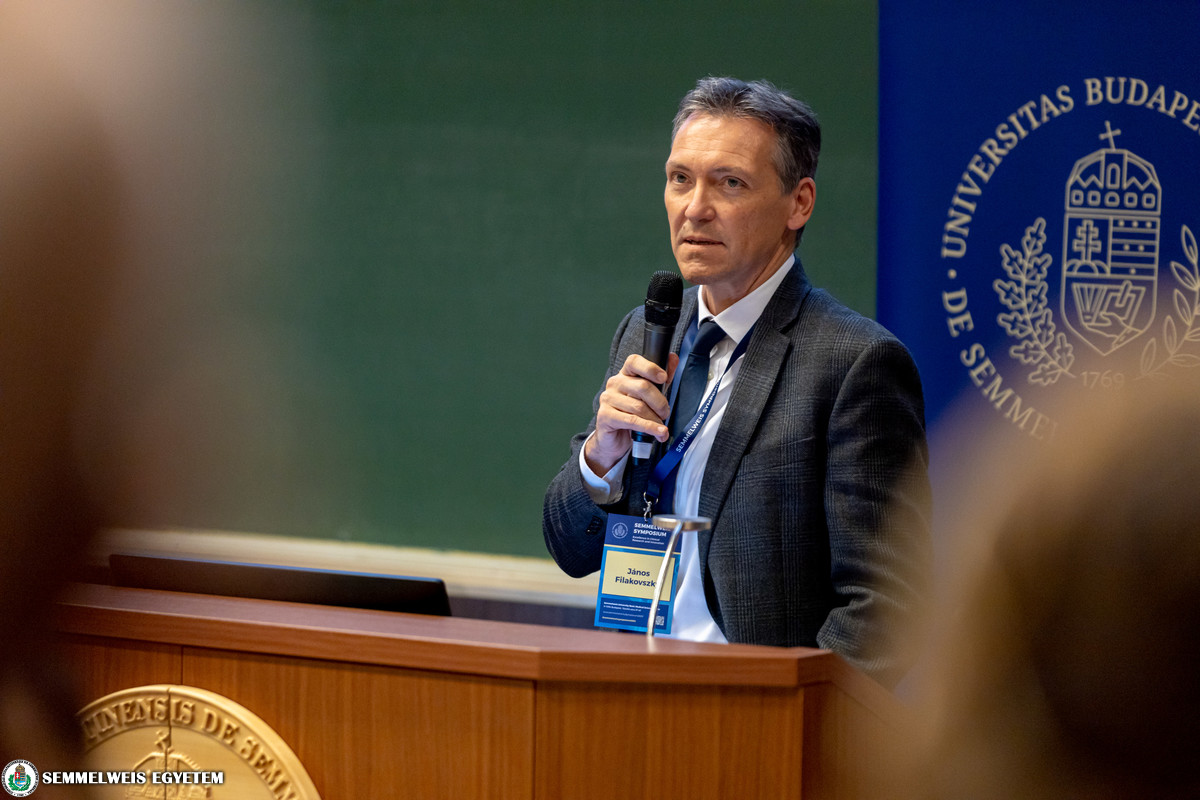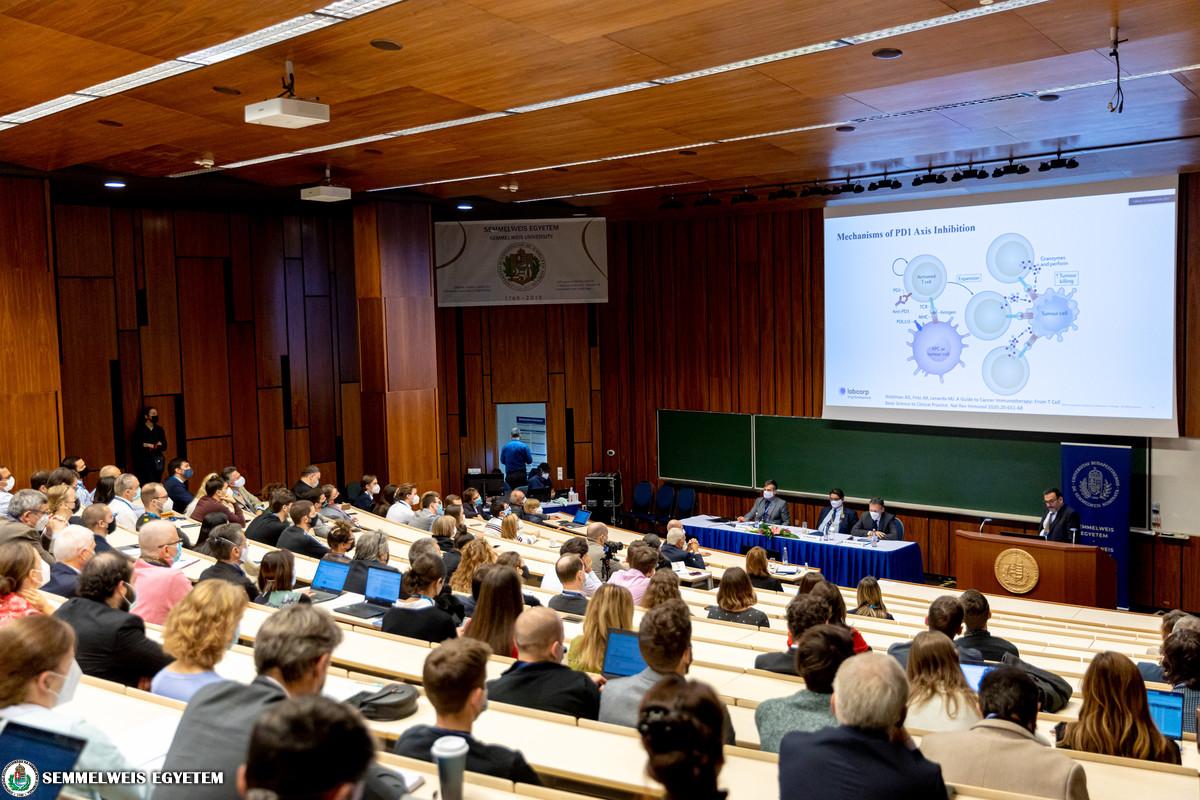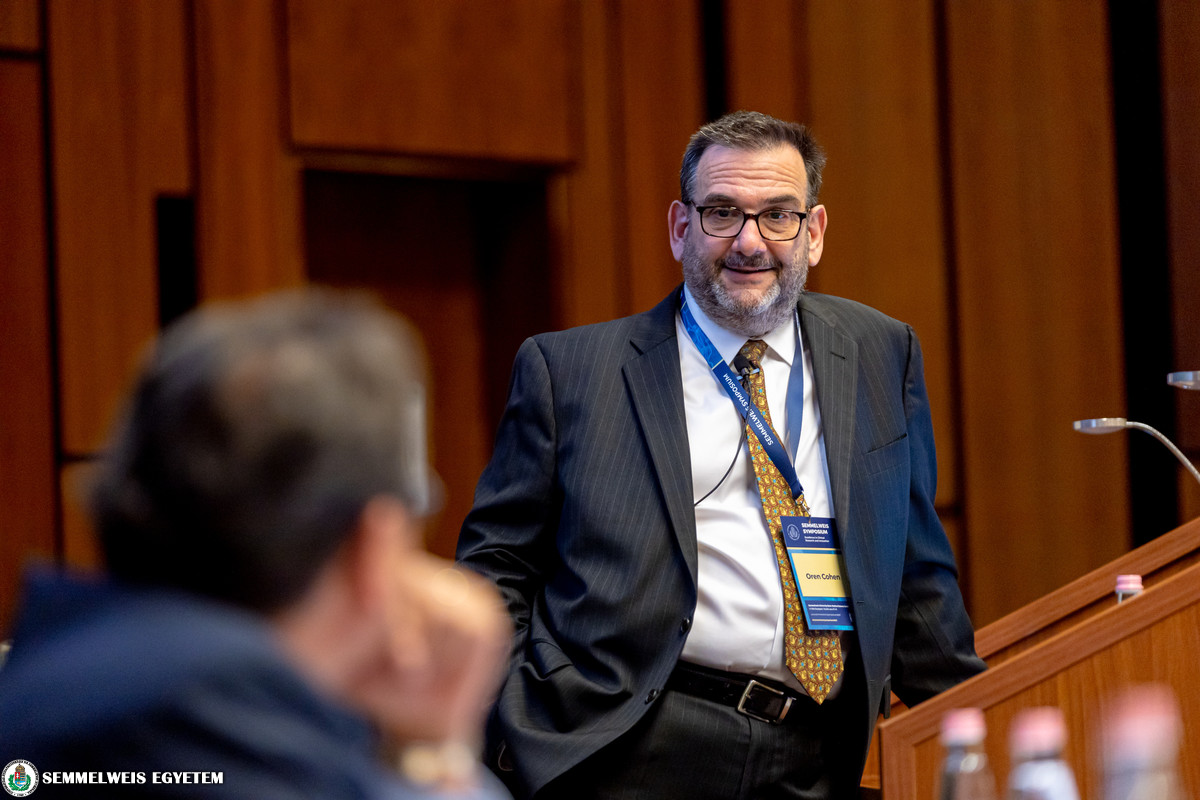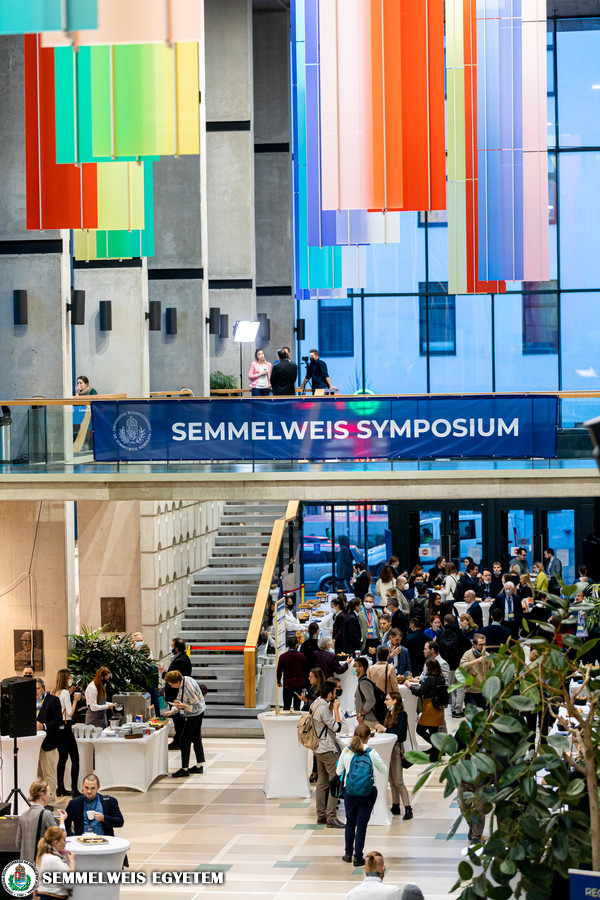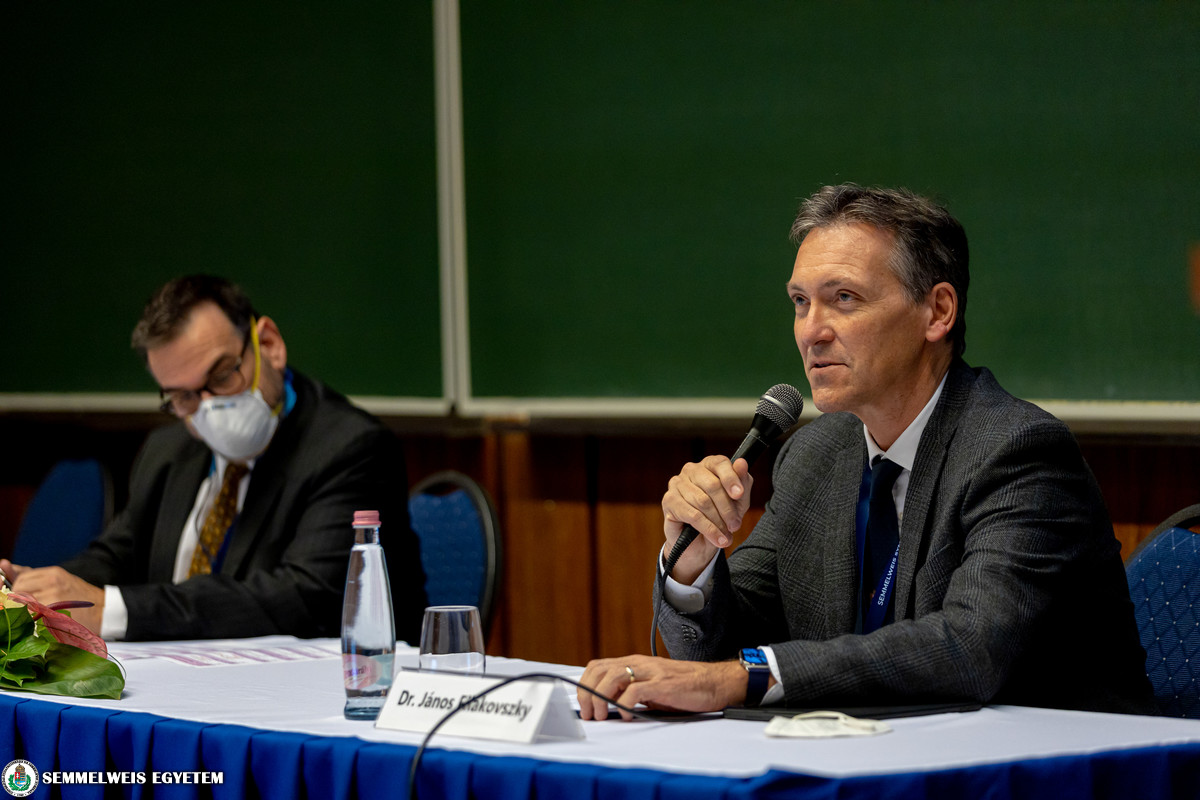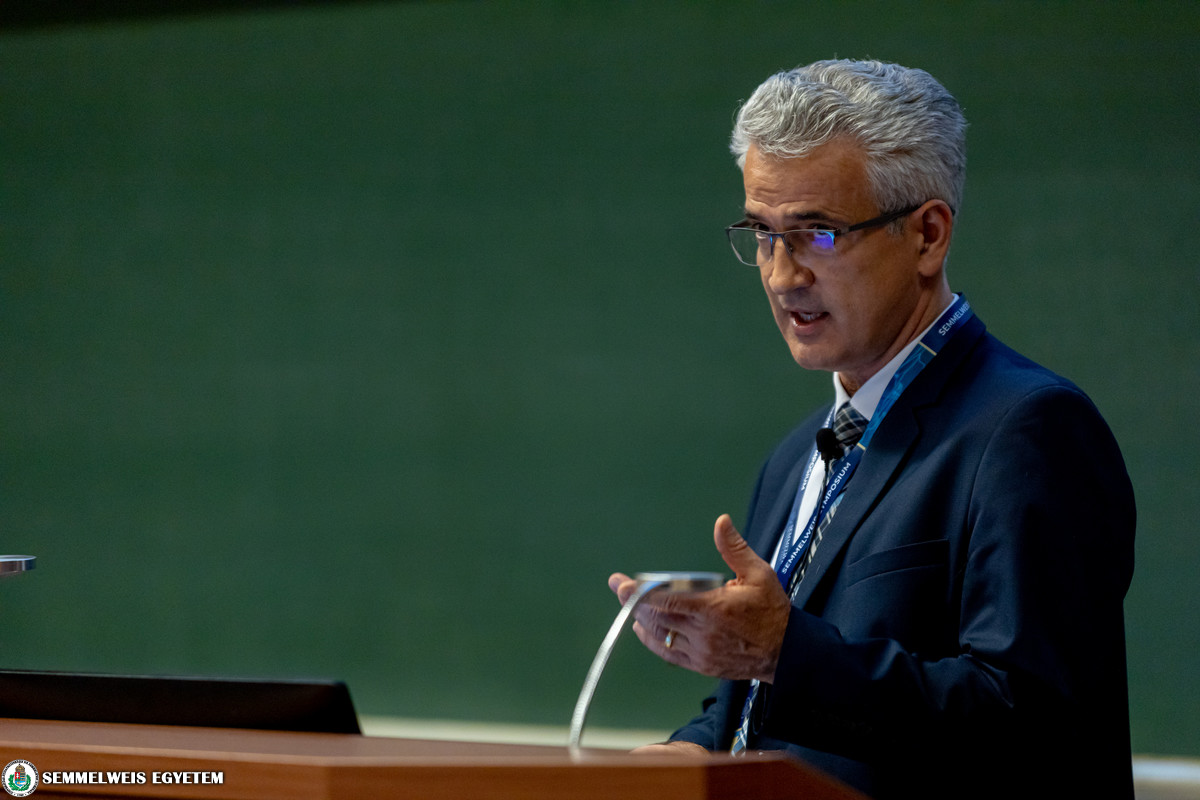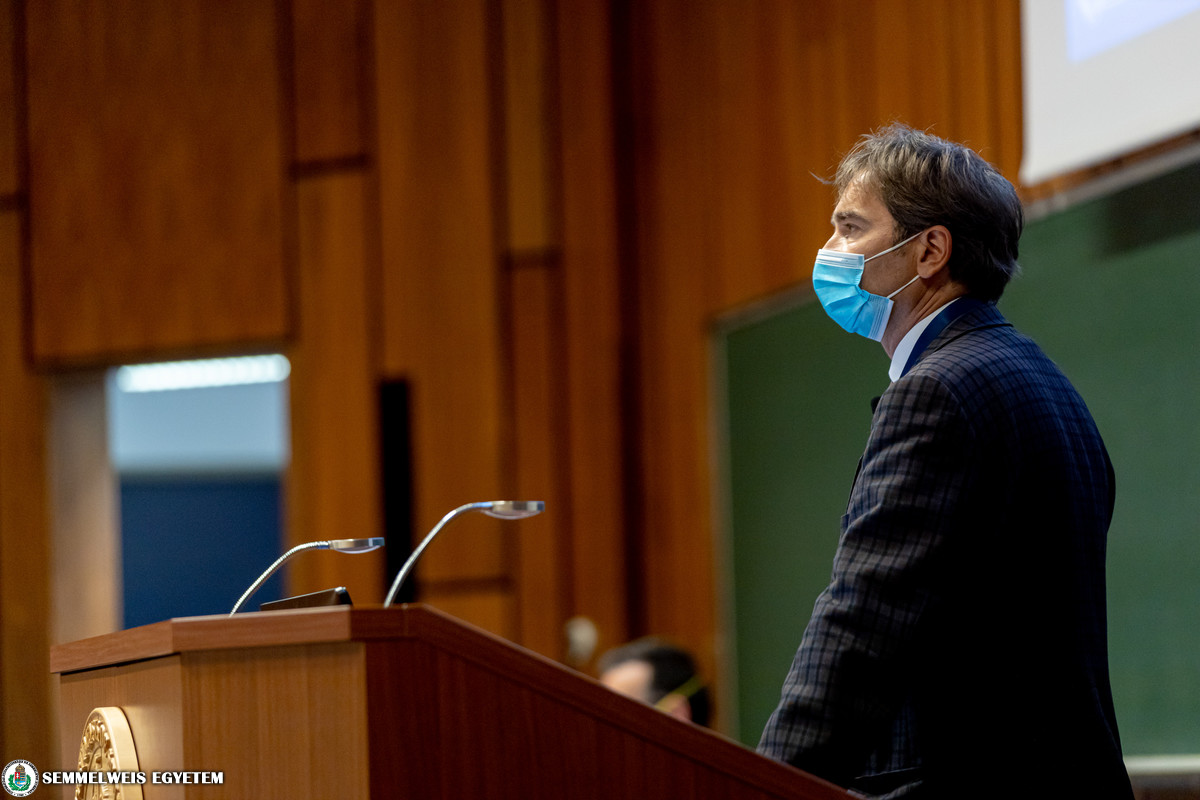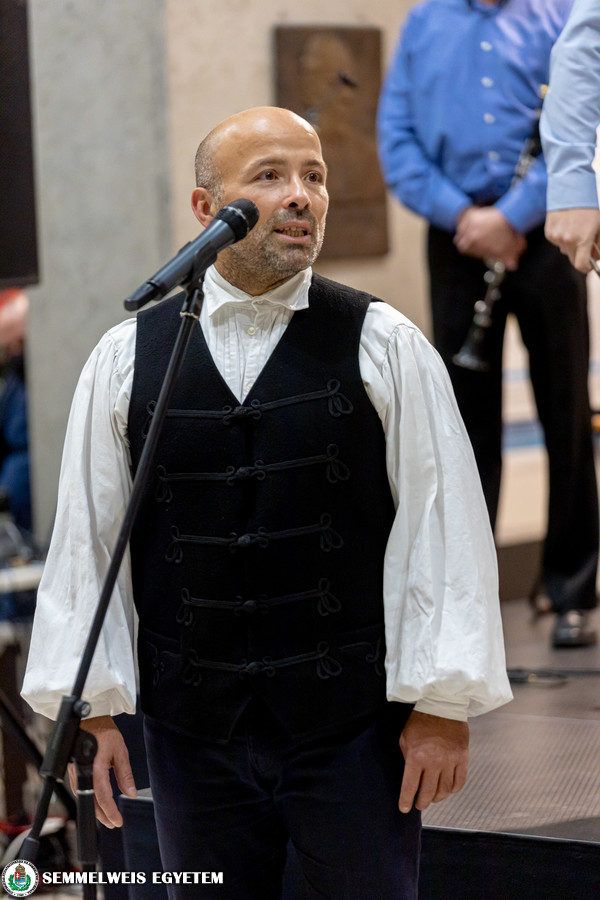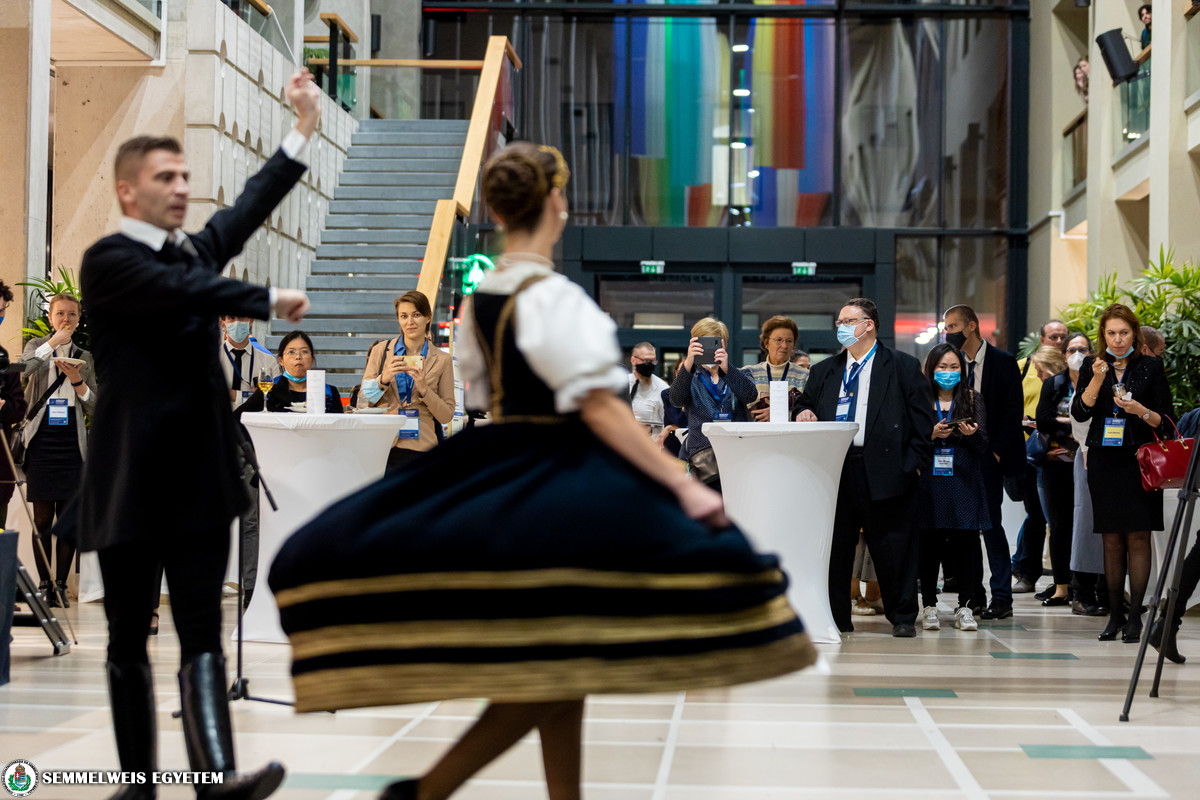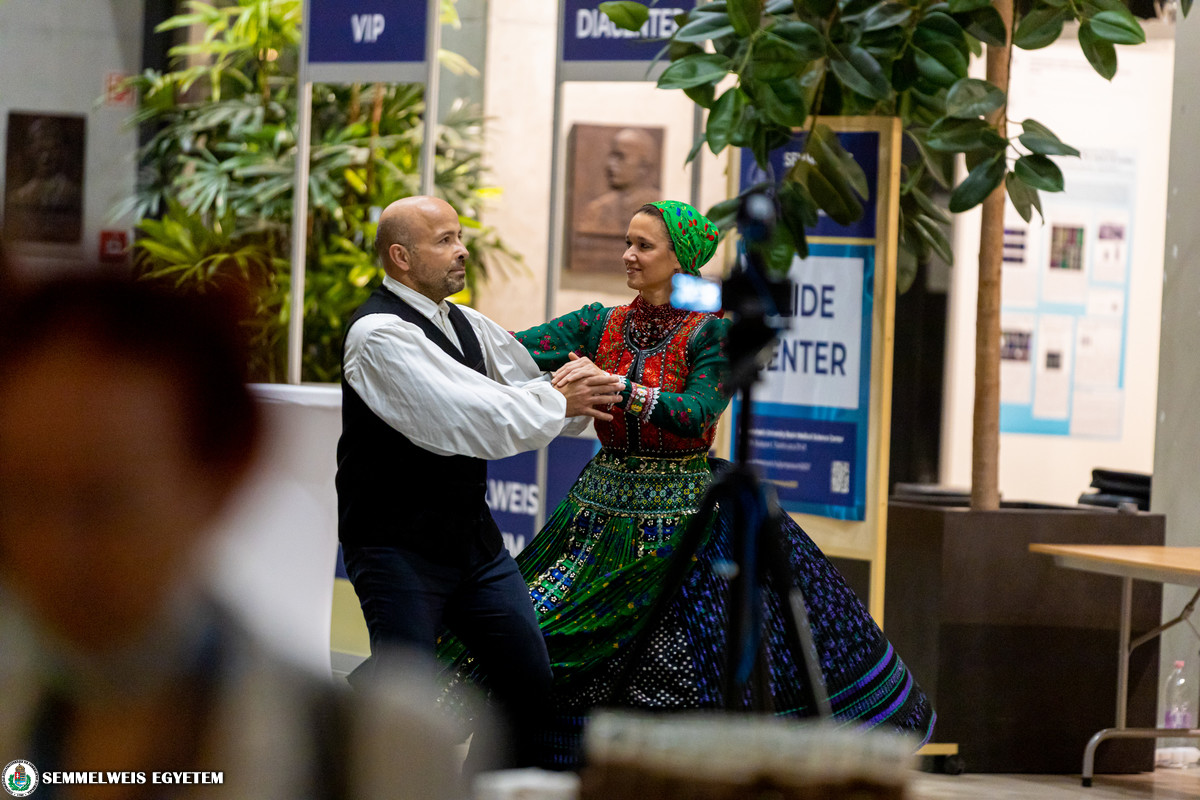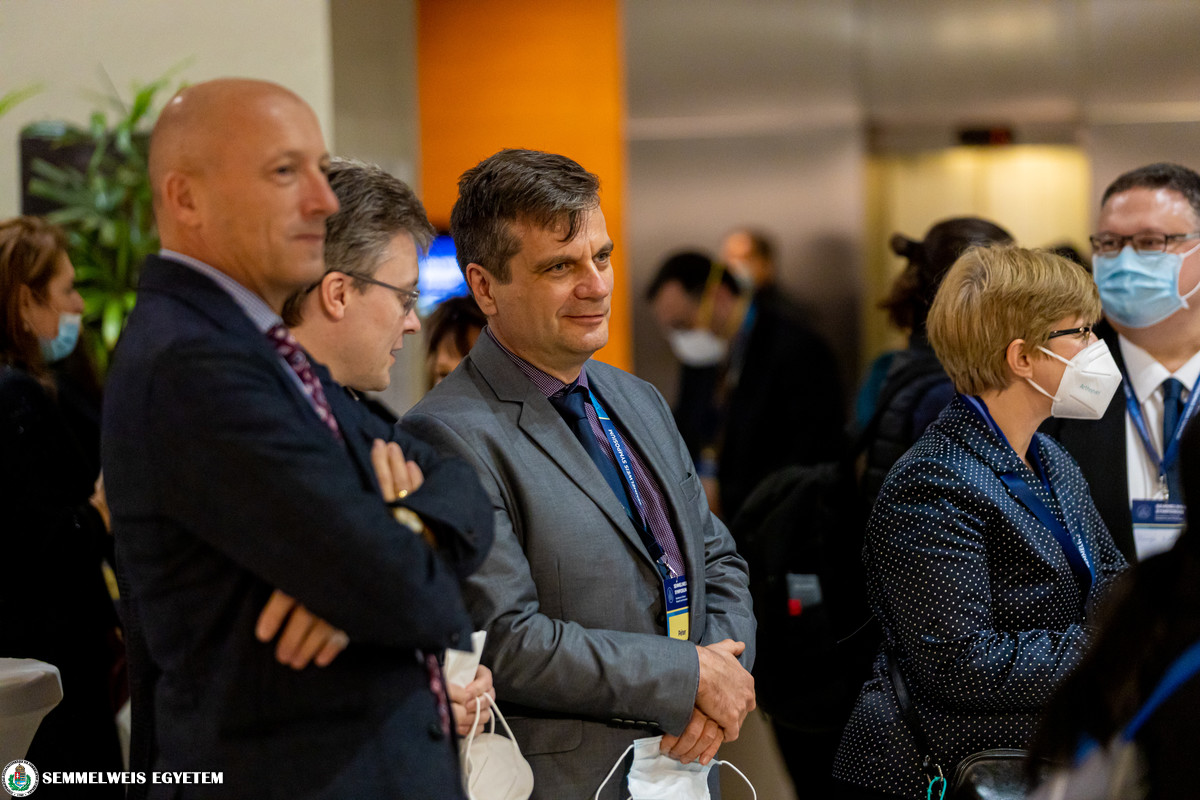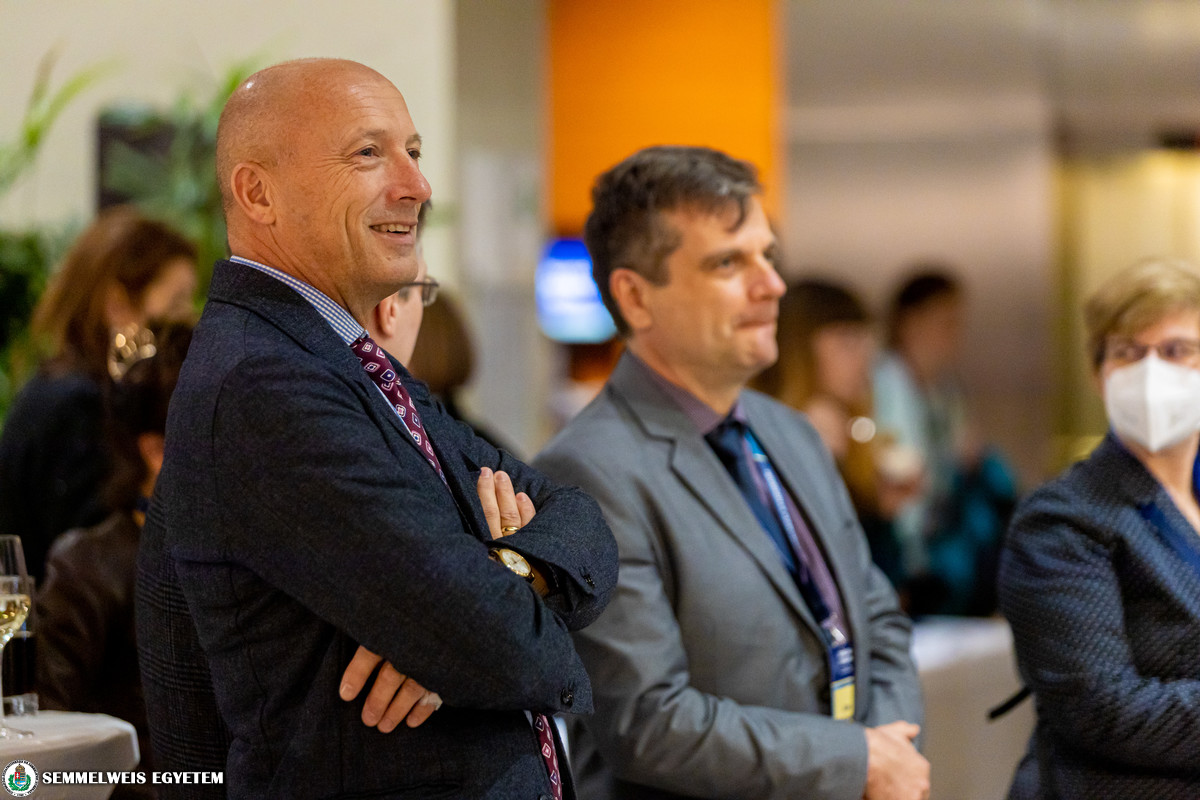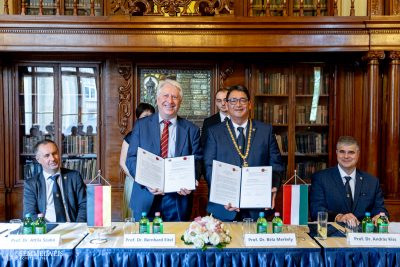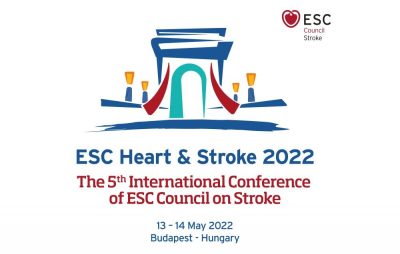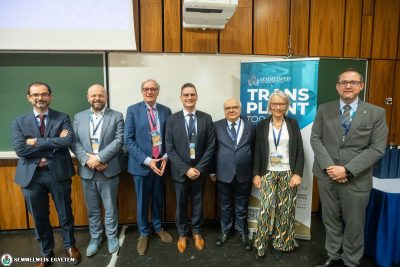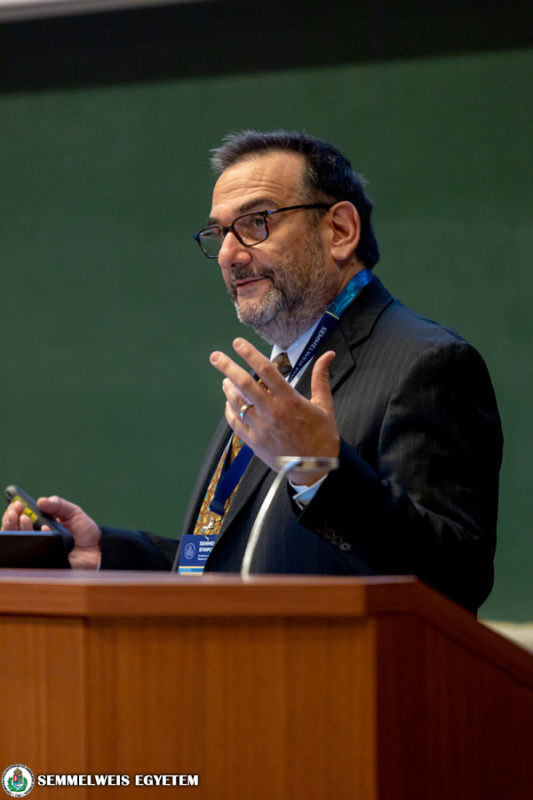 On the first day of the Semmelweis Symposium, lectures on clinical research and innovation were in focus. The first presentation was held by Dr. Oren Cohen, who has extensive clinical trial experience and has been Medical Director of LabCorp Drug Development since 2017. He presented the company’s complex early drug development platform, which takes place in a 3-storey building with 100 beds in collaboration with several academic training programs. He also talked about how clinical drug development has changed since 1820, when mercury, leeches or starvation were used as cancer therapies.
On the first day of the Semmelweis Symposium, lectures on clinical research and innovation were in focus. The first presentation was held by Dr. Oren Cohen, who has extensive clinical trial experience and has been Medical Director of LabCorp Drug Development since 2017. He presented the company’s complex early drug development platform, which takes place in a 3-storey building with 100 beds in collaboration with several academic training programs. He also talked about how clinical drug development has changed since 1820, when mercury, leeches or starvation were used as cancer therapies.
“As a researcher, I find joy my meticulous and persistent work,” he said.
He also presented interesting previously published papers, illustrating the effect of chlorine disinfection in controlling puerperal fever. In honor of the Symposium and the Ignác Semmelweis himself, he also mentioned the short film ‘That Mothers Might Live’, which won an Academy Award in 1939 and was inspired by the work of Ignác Semmelweis. He pointed out that drug development has radically changed the treatment of diseases such as multiple sclerosis, rheumatoid arthritis, oncological diseases and hepatitis C, for which clinical trials are essential. He added that biomarker development has also contributed to improvements that can be used to more accurately track results in clinical trials. He also highlighted the Phase III clinical trial results of molupiravir which could be a potent Sars-CoV-2 antiviral.
“If I could start my career again, I would choose to be an infectious disease immunologist again,” Dr. Oren Cohen said at the end of his presentation.
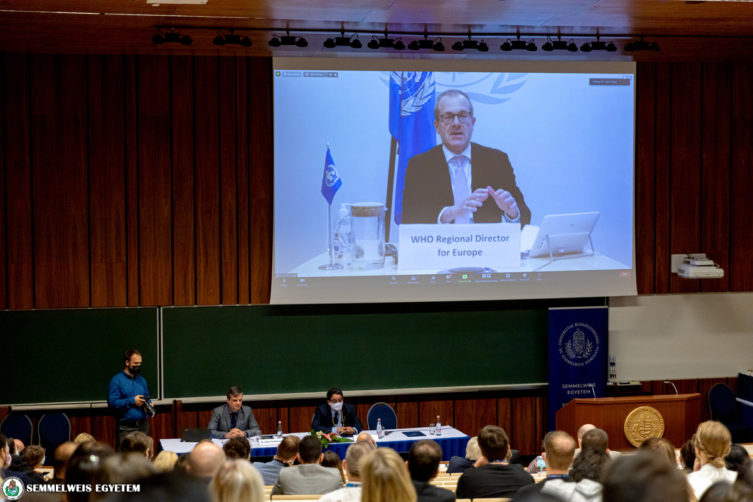 Then, Dr. Hans Kluge, WHO Regional Director for Europe, spoke about the challenges there are to be addressed in the management of the COVID-19 pandemic in the region’s 53 countries with a special focus on increasing vaccination coverage.
Then, Dr. Hans Kluge, WHO Regional Director for Europe, spoke about the challenges there are to be addressed in the management of the COVID-19 pandemic in the region’s 53 countries with a special focus on increasing vaccination coverage.
“Effective disease control during the epidemic requires decisions based on scientific evidence and their effective communication, taking appropriate timing into consideration,” he pointed out.
Previously Dr Hans Kluge worked on the management of AIDS, malaria and tuberculosis epidemics, and early in his career he worked as a general practitioner. In his presentation, he also emphasized the need for joint action to fight against antibiotic resistance. Hungary has an action plan to tackle antibiotic resistance, but steps must be taken to implement it.
In the next session, the phase I sites of Semmelweis University and Charité University Hospital in Berlin were presented. Data show that there are more and more Phase I clinical trials, therefore the availability and development of appropriate facilities are of utmost importance. In addition to the increasing number of Phase I trials, these sites also provide opportunities for further trials.
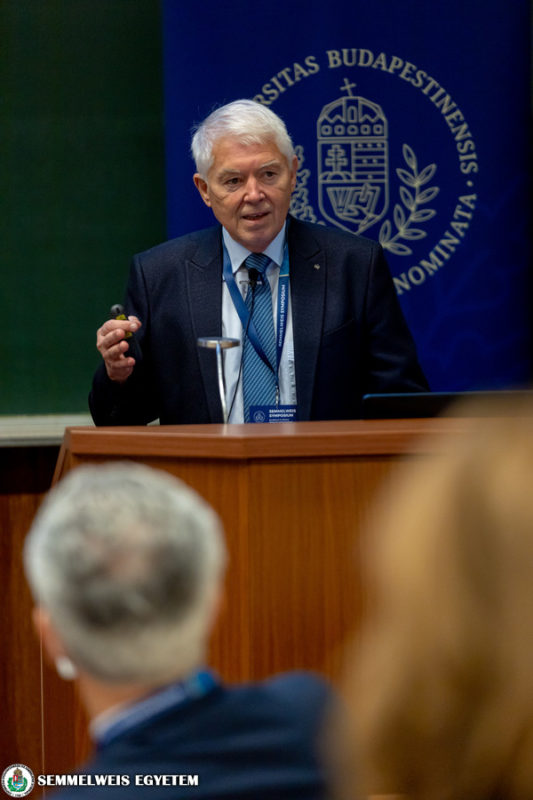 Semmelweis University has three Phase I trial sites: the one at the Department of Internal Medicine and Oncology was presented by Dr. István Takács, Director, the site at the Városmajor Heart and Vascular Center was presented by Dr. György Bárczi, Assistant Professor, and the venue at the 2nd Department of Pediatrics was presented by Dr. György Fekete, Professor Emeritus.
Semmelweis University has three Phase I trial sites: the one at the Department of Internal Medicine and Oncology was presented by Dr. István Takács, Director, the site at the Városmajor Heart and Vascular Center was presented by Dr. György Bárczi, Assistant Professor, and the venue at the 2nd Department of Pediatrics was presented by Dr. György Fekete, Professor Emeritus.
Continuous adaption to a highly regulated environment is a challenge, but it is necessary to remain competitive. In clinical trials involving children special considerations have to be taken into account: the population is fbroken down into smaller groups by age, sampling can be more difficult in terms of both design and volume, the time for medical check-ups is longer and they have to be adjusted to school activities and the schedule of the parents. In the field of cardiology, teamwork is equally important in both patient care and clinical trials. Every month a multidisciplinary team performs nearly 40 protocol-based patient visits as part of clinical trials of drugs and medical devices.
Following the lectures, the Danube Folk Ensemble gave a performance with the participation of Dr. Péter Hegyi, Director of the Center for Translational Medicine.
Dr. Renáta Papp, Office of the Vice Rector for Innovation and Science
Photo: Attila Kovács – Semmelweis University
Translation: Ágnes Raubinek
